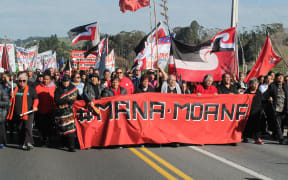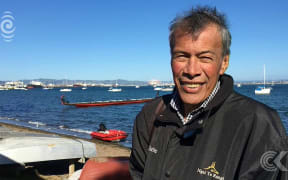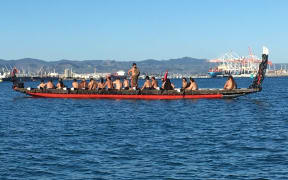The treaty settlement for the Pare Hauraki Collective will not be signed before the election, as agreement over rights to Tauranga Harbour cannot be reached.
Discussion between iwi groups of Hauraki and Tauranga on overlapping claims started in 2012 and a number of agreements were reached in 2014, but Tauranga iwi Ngāi te Rangi are not happy Hauraki iwi will have rights to the harbour.
Treaty Minister Chris Finlayson said in the absence of an agreement it was not possible to sign the Pare Hauraki Collective Redress Deed, which was initialled in December last year.
"Recently Ngāi Te Rangi protested the inclusion of redress in Tauranga Moana including elements which were negotiated and previously agreed to by Hauraki and Tauranga iwi between 2012 and 2014.
"To try and resolve these matters, there have been many discussions and attempts at facilitation between the Hauraki Collective and Tauranga Moana iwi over the last few months," said Mr Finlayson.
Mr Finlayson said the last thing he wanted to do was create further grievances through a Treaty settlement.
"I am disappointed that iwi of Hauraki will have to wait a little longer to see the benefits of their settlement but the last thing I want to do through a Treaty settlement is create further grievances.
Hauraki Collective chair Paul Majurey said opposition to the settlement by Ngāi Te Rangi was dishonest and lacked mana.
"While other Tauranga iwi - Ngāti Ranginui and Ngāti Pukenga - have agreed to honour the 2012-2014 agreements, Ngāi te Rangi has refused and wants to veto our collective settlement.
"This was all settled and agreed in 2012-2014. Then they changed their minds, reneging on a firm commitment, with their belated challenge to our longstanding and acknowledged customary interests.
"The Ngāi te Rangi leadership then mounted a protest campaign, attempting to besmirch the Crown and Pare Hauraki with false claims of secret deals, while denying the various agreements reached with them, Pare Hauraki and the Crown.
"Our settlement acknowledges the shared and overlapping interests of other iwi. In every part of New Zealand, there are complex and interwoven customary interests involving different iwi and groups.
"If the Treaty settlement process does not accommodate shared and overlapping interests, there would be no settlements in many parts of the country."
Ngāi te Rangi chairman Charlie Tawhiao said he was pleased common sense had been brought to the fore on this matter.
"There was no point arguing that agreements should be 'honoured' when we now know what had been signed had misrepresented the actual situation.
"We have to reconfigure arrangements so we can avoid creating further grievances that can ignite decades of future conflict."
Mr Tawhiao said what must be remembered was that an agreement that will be sustainable and not create further grievance needed to be found.
He believed a tikanga process, where discussion takes place on marae, will create a lasting way forward.
"It won't be easy, but it works," he said.
"We need to get away from secret meetings in lawyers offices and get back to the marae where we can bring to bear the full power of our cultural processes. That is where the integrity of the Treaty process will be found again," said Mr Tawhiao.
However, Mr Majurey said it was just a delaying tactic.
"We agreed to talks in good faith. In July this year, Ministers and advisors became involved to facilitate discussions. Ngāi Te Rangi unilaterally cancelled the first scheduled hui, and then after the first hui was held, unilaterally cancelled the next scheduled hui. There have been no further hui."




